Ancient Faith Biblical & Theological Studies Bundle (33 vols.)
Digital Logos Edition
Overview
The Ancient Faith Biblical & Theological Studies Bundle contains 33 volumes of Orthodox Christian texts written to enhance your biblical and theological studies and deepen your understanding of the Orthodox Church. The bundle is comprised of three collections:
- Ancient Faith Biblical Studies Collection (10 vols.)
- Ancient Faith Orthodox Theology Collection (10 vols.)
- Orthodox Bible Study Companion Series (13 vols.)
Delve into the Old Testament, ancient Hebrew texts, and books of the original Bible with the latest in Orthodox scholarship to discover often overlooked Christian truths. Study the books of the New Testament and work with literal translations of the Greek to interpret the original meanings of Scripture. Examine Orthodoxy side-by-side with Catholicism and Western Christianity using direct comparisons, frequently asked questions, and theological studies from texts exclusively offered in this special Logos collection. Whatever your denomination, the Ancient Faith Biblical & Theological Studies Bundle contains the tools you need to expand your personal study as well as grow in your understanding of Orthodoxy.
This title is included in the following collections
You can save when you purchase this product as part of a collection.
Logos 8 Orthodox Silver Legacy...
$349.99$349.99Logos 7 Orthodox Silver Legacy...
$349.99$349.99Logos 6 Orthodox Silver Legacy...
$349.99$349.99Logos 8 Orthodox Gold Legacy L...
$849.99$849.99
- $849.99
- $849.99
- $849.99
- $1,499.99
- $1,499.99
- $1,499.99
- $2,999.99$2,249.99
- $2,999.99
- $2,999.99
- $4,749.99$3,562.49
- $10,999.99$8,249.99
- $23,999.99$17,999.99
- $21,749.99
- $24,999.99

- Offers concise explanations of the distinctions of the Orthodox Church
- Provides comparisons between Orthodox, Catholic, and Western Christian denominations
- Includes a balance of devotional and exegetical biblical commentary
- Contains Old Testament and New Testament studies that bring Scripture into contemporary context
- Title: Ancient Faith Biblical & Theological Studies Bundle
- Publisher: Ancient Faith Publishing
- Volumes: 33
- Pages: 6,557
- Christian Group: Orthodox
- Resource Type: Commentaries
- Topic: Theological Systems
- The Gospel of Matthew: Torah for the Church by Lawrence R. Farley
- The Gospel of Mark: The Suffering Servant by Lawrence R. Farley
- The Gospel of Luke: Good News for the Poor by Lawrence R. Farley
- The Gospel of John: Beholding the Glory by Lawrence R. Farley
- The Acts of the Apostles: Spreading the Word by Lawrence R. Farley
- The Epistle to the Romans: A Gospel for All by Lawrence R. Farley
- First and Second Corinthians: Straight from the Heart by Lawrence R. Farley
- Words of Fire: The Early Epistles of St. Paul to the Thessalonians and the Galatians by Lawrence R. Farley
- The Prison Epistles: Philippians-Ephesians-Colossians-Philemon by Lawrence R. Farley
- Shepherding the Flock: The Pastoral Epistles of Saint Paul the Apostle to Timothy and to Titus by Lawrence R. Farley
- The Epistle to the Hebrews: High Priest in Heaven by Lawrence R. Farley
- Universal Truth: The Catholic Epistles of James, Peter, Jude, and John by Lawrence R. Farley
- The Apocalypse of St. John: A Revelation of Love and Power by Lawrence R. Farley
- The Rest of the Bible: A Guide to the Old Testament of the Early Church by Theron Mathis
- The Christian Old Testament: Looking at the Hebrew Scriptures Through Christian Eyes by Lawrence R. Farley
- Creation and the Patriarchal Histories: Orthodox Christian Reflections on the Book of Genesis by Patrick Henry Reardon
- Chronicles of History and Worship: Orthodox Christian Reflections on the Books of Chronicles by Patrick Henry Reardon
- The Trial of Job: Orthodox Christian Reflections on the Book of Job by Patrick Henry Reardon
- Christ in the Psalms by Patrick Henry Reardon
- Wise Lives: Orthodox Christian Reflections on the Wisdom of Sirach by Patrick Henry Reardon
- Christ in His Saints by Patrick Henry Reardon
- A Second Look at the Second Coming: Sorting Through the Speculations by T.L. Frazier
- Ultimate Things: An Orthodox Christian Perspective on the End Times by Dennis E. Engleman
- Everywhere Present: Christianity in a One-Storey Universe by Stephen Freeman
- Orthodoxy and Heterodoxy: Exploring Belief Systems through the Lens of the Ancient Christian Faith by Andrew Stephen Damick
- Orthodox Answers to Frequently Asked Questions by Marc Dunaway
- Orthodoxy and Catholicism: What are the Differences? by Theodore Pulcini
- Popes and Patriarchs: An Orthodox Perspective on Roman Catholic Claims by Michael Whelton
- Sola Scriptura: An Orthodox Analysis of the Cornerstone of Reformation Theology by John Whiteford
- Let Us Attend: A Journey Through the Orthodox Divine Liturgy by Lawrence R. Farley
- Bodily Resurrection by Sisters of the Monastery of the Transfiguration
- Apostolic Succession by Gregory Rogers
- Spread the Word: Reclaiming the Apostolic Tradition of Evangelism by Michael Keiser
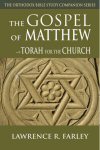
The Gospel of Matthew was written to prove to the Jews that Jesus of Nazareth is indeed the Christ, the fulfillment of their Scriptures. It contains the most thorough and organized presentation of Christ’s teaching anywhere in Scripture. Thus, the Gospel of Matthew is like the Christian Torah—the record of God’s words and deeds through Christ. Matthew’s Gospel also stresses the church, since it is the true Israel, the holy remnant, whose message is to be taken to Jews (and Gentiles) everywhere. In The Gospel of Matthew: Torah for the Church, Farley works from a literal translation of the original Greek and examines Matthew section by section, explaining its meaning in contemporary language.
Archpriest Lawrence R. Farley currently pastors St. Herman of Alaska Orthodox Mission (OCA) in Langley, Canada. He received his BA from Trinity College, Toronto, and his MDiv from Wycliffe College, Toronto. A former Anglican priest, he converted to Orthodoxy in 1985 and studied for two years at St. Tikhon’s Orthodox Seminary in Pennsylvania. He has also published A Daily Calendar of Saints and gives a regular podcast called Coffee Cup Commentaries.
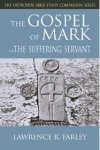
Israel expected the Messiah to be a conquering hero who would liberate the Jews from their Roman servitude. Instead, Christ came as a suffering servant to liberate all mankind from slavery to sin. The Gospel of Mark records Christ’s public ministry as both a journey to the cross and a time of vigorous action, when his miracles astounded the multitudes and his boldness infuriated his foes. In The Gospel of Mark: The Suffering Servant, Farley works from a literal translation of the original Greek and examines Mark section by section, explaining its meaning in contemporary language.
Archpriest Lawrence R. Farley currently pastors St. Herman of Alaska Orthodox Mission (OCA) in Langley, Canada. He received his BA from Trinity College, Toronto, and his MDiv from Wycliffe College, Toronto. A former Anglican priest, he converted to Orthodoxy in 1985 and studied for two years at St. Tikhon’s Orthodox Seminary in Pennsylvania. He has also published A Daily Calendar of Saints and gives a regular podcast called Coffee Cup Commentaries.
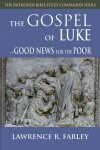
The Gospel of St. Luke was written by a gentile, for gentiles. Its purpose was to touch hearts with the good news of Christ, and it speaks especially to the poor and the marginalized of society—including women—with an emphasis on joy, healing, and prayer. Lawrence Farley expounds upon this beautiful account of the life and ministry of Christ for contemporary Christians. In The Gospel of Luke: Good News for the Poor, Farley works from a literal translation of the original Greek and examines Luke section by section, explaining its meaning in contemporary language.
Archpriest Lawrence R. Farley currently pastors St. Herman of Alaska Orthodox Mission (OCA) in Langley, Canada. He received his BA from Trinity College, Toronto, and his MDiv from Wycliffe College, Toronto. A former Anglican priest, he converted to Orthodoxy in 1985 and studied for two years at St. Tikhon’s Orthodox Seminary in Pennsylvania. He has also published A Daily Calendar of Saints and gives a regular podcast called Coffee Cup Commentaries.
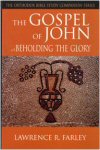
The Gospel of John strives to persuade the hearts and minds of the undecided that Jesus is the Christ, the son of God, and the only source of eternal life. St. John, as one of the 12 and a witness to Christ’s glory, sets his Gospel in a cosmic context, revealing Christ as the eternal light of God, the truth and voice of the father, the divine glory shining in the midst of men. In The Gospel of John: Beholding the Glory, Farley works from a literal translation of the original Greek and examines John section by section, explaining its meaning in contemporary language.
Archpriest Lawrence R. Farley currently pastors St. Herman of Alaska Orthodox Mission (OCA) in Langley, Canada. He received his BA from Trinity College, Toronto, and his MDiv from Wycliffe College, Toronto. A former Anglican priest, he converted to Orthodoxy in 1985 and studied for two years at St. Tikhon’s Orthodox Seminary in Pennsylvania. He has also published A Daily Calendar of Saints and gives a regular podcast called Coffee Cup Commentaries.
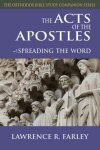
In The Acts of the Apostles: Spreading the Word, Lawrence Farley explores Acts as the sequel to Luke. He treats the book as an apology for the Christian faith as the fulfillment of Judaism, a Gospel for all peoples, a faith that poses no threat to Roman government or society, and the greatest adventure story of all time. In The Acts of the Apostles: Spreading the Word, Farley works from a literal translation of the original Greek and examines Acts section by section, explaining its meaning in contemporary language.
Archpriest Lawrence R. Farley currently pastors St. Herman of Alaska Orthodox Mission (OCA) in Langley, Canada. He received his BA from Trinity College, Toronto, and his MDiv from Wycliffe College, Toronto. A former Anglican priest, he converted to Orthodoxy in 1985 and studied for two years at St. Tikhon’s Orthodox Seminary in Pennsylvania. He has also published A Daily Calendar of Saints and gives a regular podcast called Coffee Cup Commentaries.
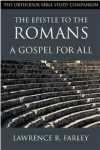
The apostle Paul lived within a swirl of controversy. False Christians—Judaizers—dogged his every step, slandering his motives, denying his apostolic authority, and seeking to overthrow his gospel teaching. They argued their case loudly, and Paul knew that he must give the literary performance of his life. The result was the Epistle to the Romans, in which he demonstrates the truth of his Gospel—a Gospel for all men—and thereby vindicates his apostolic authority. In The Epistle to the Romans: A Gospel for All, Farley works from a literal translation of the original Greek and examines Romans section by section, explaining its meaning in contemporary language.
Archpriest Lawrence R. Farley currently pastors St. Herman of Alaska Orthodox Mission (OCA) in Langley, Canada. He received his BA from Trinity College, Toronto, and his MDiv from Wycliffe College, Toronto. A former Anglican priest, he converted to Orthodoxy in 1985 and studied for two years at St. Tikhon’s Orthodox Seminary in Pennsylvania. He has also published A Daily Calendar of Saints and gives a regular podcast called Coffee Cup Commentaries.
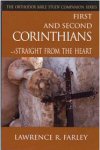
The community Paul founded in Corinth gave him both joy and grief, as he encountered disunity, sin, and arrogance including the rejection of his own apostolic authority by some of his flock. His two epistles to the Corinthians come from the heart as he appeals to them to live in peace, righteousness, and generosity, and not to resist his God-given authority. His Corinthian correspondence abides as a lasting legacy and a challenge for churches everywhere. In First and Second Corinthians: Straight from the Heart, Farley works from a literal translation of the original Greek and examines the letters to the Corinthians section by section, explaining their meaning in contemporary language.
Archpriest Lawrence R. Farley currently pastors St. Herman of Alaska Orthodox Mission (OCA) in Langley, Canada. He received his BA from Trinity College, Toronto, and his MDiv from Wycliffe College, Toronto. A former Anglican priest, he converted to Orthodoxy in 1985 and studied for two years at St. Tikhon’s Orthodox Seminary in Pennsylvania. He has also published A Daily Calendar of Saints and gives a regular podcast called Coffee Cup Commentaries.
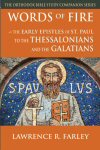
Paul’s letters to the Thessalonica and Galatia are not words of disinterested philosophy nor cold catechetical teaching. They are words of fire, burning with the love of God and his people. These early epistles have endured through the centuries to burn in our hearts as well. In Words of Fire: The Early Epistles of St. Paul to the Thessalonians and the Galatians, Farley works from a literal translation of the original Greek and examines Thessalonians and Galations section by section, explaining their meaning in contemporary language.
Archpriest Lawrence R. Farley currently pastors St. Herman of Alaska Orthodox Mission (OCA) in Langley, Canada. He received his BA from Trinity College, Toronto, and his MDiv from Wycliffe College, Toronto. A former Anglican priest, he converted to Orthodoxy in 1985 and studied for two years at St. Tikhon’s Orthodox Seminary in Pennsylvania. He has also published A Daily Calendar of Saints and gives a regular podcast called Coffee Cup Commentaries.
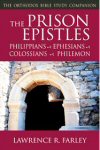
From the depths of a Roman prison, words of encouragement and instruction from Paul were sent in a series of letters to communities throughout the Roman Empire. St. Paul was shackled to Roman guards and the prisons they kept, but the word he preached remained free and full of life. In The Prison Epistles: Philippians-Ephesians-Colossians-Philemon Farley works from a literal translation of the original Greek and examines Philippians, Ephesians, Colossians, and Philemon section by section, explaining their meaning in contemporary language.
Archpriest Lawrence R. Farley currently pastors St. Herman of Alaska Orthodox Mission (OCA) in Langley, Canada. He received his BA from Trinity College, Toronto, and his MDiv from Wycliffe College, Toronto. A former Anglican priest, he converted to Orthodoxy in 1985 and studied for two years at St. Tikhon’s Orthodox Seminary in Pennsylvania. He has also published A Daily Calendar of Saints and gives a regular podcast called Coffee Cup Commentaries.
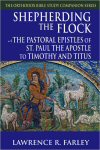
Shepherding the Flock: The Pastoral Epistles of Saint Paul the Apostle to Timothy and to Titus
- Author: Lawrence R. Farley
- Series: Orthodox Bible Study Companion Series
- Publisher: Ancient Faith Publishing
- Publication Date: 2008
- Pages: 144
St. Paul’s epistles to Timothy and Titus contain the apostle’s instructions to the pastors under his care about how they should care for their flocks in wisdom and love. As the last epistles St. Paul wrote in anticipation of his martyrdom, they remain a testimony to his pastoral love and an inspiration for those in the Church—both the shepherds and the flock—to walk in holiness and love. In Shepherding the Flock: The Pastoral Epistles of Saint Paul the Apostle to Timothy and to Titus Farley works from a literal translation of the original Greek and examines Paul’s letters to Timothy and Titus section by section, explaining their meaning in contemporary language.
Archpriest Lawrence R. Farley currently pastors St. Herman of Alaska Orthodox Mission (OCA) in Langley, Canada. He received his BA from Trinity College, Toronto, and his MDiv from Wycliffe College, Toronto. A former Anglican priest, he converted to Orthodoxy in 1985 and studied for two years at St. Tikhon’s Orthodox Seminary in Pennsylvania. He has also published A Daily Calendar of Saints and gives a regular podcast called Coffee Cup Commentaries.
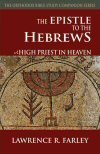
The Hebrew Christians of apostolic-era Palestine were tempted to fall back into Jewish ways because of persecution and a lack of understanding of the true significance of Christ. The writer of Hebrews exhorts them to stand fast, finish the race, and attain the promises awaiting the faithful. As part of the Orthodox Bible Study Companion Series, this commentary applies the teachings of Hebrews to our twenty-first-century lives. Orthodox archpriest Lawrence Farley balances the devotional with the intellectual, feeding both the heart and mind. Working from the original Greek, he examines Hebrews section by section and reveals its relevance for our everyday lives.
Archpriest Lawrence R. Farley currently pastors St. Herman of Alaska Orthodox Mission (OCA) in Langley, Canada. He received his BA from Trinity College, Toronto, and his MDiv from Wycliffe College, Toronto. A former Anglican priest, he converted to Orthodoxy in 1985 and studied for two years at St. Tikhon’s Orthodox Seminary in Pennsylvania. He has also published A Daily Calendar of Saints and gives a regular podcast called Coffee Cup Commentaries.
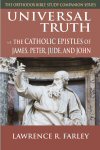
The Catholic, or general, epistles of James, Peter, Jude, and John are sometimes overshadowed by the stirring theology of the great apostle to the gentiles, St. Paul. But these seven epistles are quiet gems of instruction, encouragement, and exhortation for all believers. Written at various times and locations and to differing audiences, the general epistles nevertheless share common themes: endurance under persecution; living out the faith in a hostile society; discerning heresy by its fruits—immorality and lack of love—and resisting it, holding fast to the apostolic faith. As Farley deftly shows in his commentary, all of these are timely themes believers today can richly profit from.
Archpriest Lawrence R. Farley currently pastors St. Herman of Alaska Orthodox Mission (OCA) in Langley, Canada. He received his BA from Trinity College, Toronto, and his MDiv from Wycliffe College, Toronto. A former Anglican priest, he converted to Orthodoxy in 1985 and studied for two years at St. Tikhon’s Orthodox Seminary in Pennsylvania. He has also published A Daily Calendar of Saints and gives a regular podcast called Coffee Cup Commentaries.
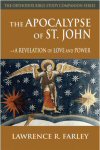
The book of Revelation has inspired controversy ever since it was written in the first century. It was the last book to be accepted into the New Testament canon, and today a myriad of mutually contradictory end-times speculations claim to be based on its teachings. Lawrence Farley provides a sober, patristic interpretation that reads Revelation in its proper context of Jewish apocalyptic literature. He demonstrates that the most important lesson we can learn from Revelation today is the need to remain faithful in a time of widespread hostility to the Christian faith.
Archpriest Lawrence R. Farley currently pastors St. Herman of Alaska Orthodox Mission (OCA) in Langley, Canada. He received his BA from Trinity College, Toronto, and his MDiv from Wycliffe College, Toronto. A former Anglican priest, he converted to Orthodoxy in 1985 and studied for two years at St. Tikhon’s Orthodox Seminary in Pennsylvania. He has also published A Daily Calendar of Saints and gives a regular podcast called Coffee Cup Commentaries.
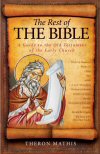
This book argues that the original Old Testament was full of personal, powerful stories that still have meaning for Christians today. A beautiful widow risks her life to defend her people while men cower in fear. A young man takes a journey with an archangel and faces down a demon in order to marry a woman seven times widowed. A reprobate king repents and miraculously turns back toward God. A Jewish exile plays a game of riddles in a Persian king’s court. Young men and widows become martyrs in the face of idolatry. Wisdom is detailed and exalted. Christ is revealed. These and many other stories make up the collection of writings explored in this book—from ancient Jewish religious texts many people have never read. Mathis states that these books of the Greek Old Testament were a vital part of the church’s life in the early centuries, and are still read and treasured by Orthodox Christians today. The Rest of the Bible provides a brief and intriguing introduction to each of these valuable texts, which St. Athanasius termed “the Readables.”
Theron Mathis received his BS in religion from Liberty University and his MDiv from Southern Seminary. Raised Baptist, Mathis converted to Orthodoxy after attending seminary. He is a blogger for “The Sounding Orthodox Blog.”
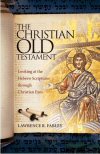
Many Christians see the Old Testament as “the other Testament”: a source of exciting stories to tell the kids, but not very relevant to the Christian life. The Christian Old Testament reveals the Hebrew Scriptures as the essential context of Christianity, as well as a multi-layered revelation of Christ himself.
Archpriest Lawrence Farley currently pastors St. Herman of Alaska Orthodox Mission (OCA) in Langley, Canada. He received his BA from Trinity College, Toronto, and his MDiv from Wycliffe College, Toronto. A former Anglican priest, he converted to Orthodoxy in 1985 and studied for two years at St. Tikhon’s Orthodox Seminary in Pennsylvania. He has also published A Daily Calendar of Saints and gives a regular podcast called Coffee Cup Commentaries.
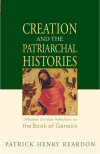
The book of Genesis is foundational reading for the Christian. Its opening pages provide the theological suppositions of the entire biblical story: creation, the structure of time, man’s relationship to God, the entrance of sin into the world, and God’s selection of a specific line of revelation that gives structure to history. This text argues that early Christian writers like St. Paul saw no dichotomy between the writings of the law, of which Genesis is the beginning, and the gospel. Rather, the gospel is the key to understanding the law. In Creation and the Patriarchal Histories, Reardon shows how the proper understanding of creation and the fall informs all of Christian doctrine, and how the narratives of the patriarchs from Noah to Joseph pave the way for the salvation history that continues in Exodus.
The Greek and Latin fathers of the church found the revelation of creation, the fall, and the covenantal promises in Genesis immensely enlightening. Evil and sin were not due to human nature but to a prideful flight from the offer of friendship with the transcendent God who created the universe and, even after the fall promises a redemptive Messiah. Patrick Henry Reardon’s commentary conveys central aspects of this enlightenment, showing that is as relevant today as it has ever been down the millennia.
—Matthew L. Lamb, chairman, department of theology, Ave Maria University
Archpriest Patrick Henry Reardon has given us a new map to find the time tested answers that are part of the treasury of the rich tradition of the Orthodox Church. This trenchant commentary is indeed a new gem to be added to the library of those who love Holy Scripture.
—Chad Hatfield, chancellor, St. Vladimir’s Seminary
Any serious student of Scripture and culture will benefit from reading [this] book.
—Father Hans Jacobse, editor, OrthodoxyToday.org
Patrick Henry Reardon is the pastor of All Saints Orthodox Church in Chicago, Illinois, and a senior editor at Touchstone: A Journal of Mere Christianity. He was educated at Southern Baptist Theological Seminary, St. Anselm’s College in Rome, the Pontifical Biblical Institute in Rome, the University of Liverpool, and St. Tikhon’s Orthodox Seminary. He is the author of several books and more than 500 articles, editorials, and reviews published in Books and Culture, Touchstone, The Scottish Journal of Theology, The Catholic Biblical Quarterly, Pro Ecclesia, St. Vladimir’s Theological Quarterly, and other journals across three continents.
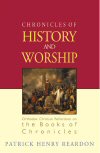
The Old Testament book of Chronicles contains some of the most neglected passages in all of Scripture. Understanding its message can be a difficult and daunting task for the modern reader. Patrick Reardon brings this important book to life, unfolding its powerful message for our own day. Like any family history, the story of Chronicles is told with a distinct purpose in mind. It asks the question: “What was the real and lasting significance of King David and his house?” Beginning with the long list of names of the first chapter, this heritage is revealed in cosmic significance. It has in fact become the family tree of every true believer.
Patrick Henry Reardon is the pastor of All Saints Orthodox Church in Chicago, Illinois, and a senior editor at Touchstone: A Journal of Mere Christianity. He was educated at Southern Baptist Theological Seminary, St. Anselm’s College in Rome, the Pontifical Biblical Institute in Rome, the University of Liverpool, and St. Tikhon’s Orthodox Seminary. He is the author of several books and more than 500 articles, editorials, and reviews published in Books and Culture, Touchstone, The Scottish Journal of Theology, The Catholic Biblical Quarterly, Pro Ecclesia, St. Vladimir’s Theological Quarterly, and other journals across three continents.
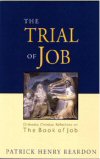
In The Trial of Job, Father Patrick Reardon helps the reader identify with Job on multiple levels, making him accessible to those less familiar with Scripture, those who cannot relate to the extent of his suffering and despair, as well as those who have had their share of tragedy.
Ultimately, all of us identify with one or another aspect of Job’s life. As life inevitably informs and as this book intuitively confirms, one cannot sing Psalms without having read Job!
—John Chryssavgis, Archdeacon of the Ecumenical Throne
Patrick Henry Reardon is the pastor of All Saints Orthodox Church in Chicago, Illinois, and a senior editor at Touchstone: A Journal of Mere Christianity. He was educated at Southern Baptist Theological Seminary, St. Anselm’s College in Rome, the Pontifical Biblical Institute in Rome, the University of Liverpool, and St. Tikhon’s Orthodox Seminary. He is the author of several books and more than 500 articles, editorials, and reviews published in Books and Culture, Touchstone, The Scottish Journal of Theology, The Catholic Biblical Quarterly, Pro Ecclesia, St. Vladimir’s Theological Quarterly, and other journals across three continents.
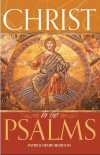
Christ in the Psalms takes the reader on a thought-provoking and enlightening pilgrimage through this beloved prayer book of the church. Lively and highly devotional, this book holds a wealth of insight into the beloved Scriptures, the world of the early church, and the apostles themselves, who constantly used and referred to the Psalms in their own writings. Christ in the Psalms is appropriate for Great Lent or any other time of the year.
Patrick Henry Reardon is the pastor of All Saints Orthodox Church in Chicago, Illinois, and a senior editor at Touchstone: A Journal of Mere Christianity. He was educated at Southern Baptist Theological Seminary, St. Anselm’s College in Rome, the Pontifical Biblical Institute in Rome, the University of Liverpool, and St. Tikhon’s Orthodox Seminary. He is the author of several books and more than 500 articles, editorials, and reviews published in Books and Culture, Touchstone, The Scottish Journal of Theology, The Catholic Biblical Quarterly, Pro Ecclesia, St. Vladimir’s Theological Quarterly, and other journals across three continents.
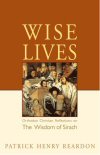
Reardon states that although it is found in every major extant Christian manuscript of the Old Testament, the later exclusion of the Wisdom of Sirach from the Protestant canon has made it one of the little-known gems of Holy Scripture. Composed in Hebrew and translated into Greek in the 2nd century before Christ, it is among the last books of the Old Testament. Sirach represents the more primitive and conservative aspect of Israel’s wisdom tradition—the practical application of the fear of God to daily life—but he enhances that tradition by a singular attention to biography and historical literature in the shaping of the soul.
Patrick Henry Reardon is the pastor of All Saints Orthodox Church in Chicago, Illinois, and a senior editor at Touchstone: A Journal of Mere Christianity. He was educated at Southern Baptist Theological Seminary, St. Anselm’s College in Rome, the Pontifical Biblical Institute in Rome, the University of Liverpool, and St. Tikhon’s Orthodox Seminary. He is the author of several books and more than 500 articles, editorials, and reviews published in Books and Culture, Touchstone, The Scottish Journal of Theology, The Catholic Biblical Quarterly, Pro Ecclesia, St. Vladimir’s Theological Quarterly, and other journals across three continents.
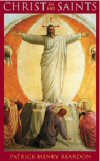
In this sequel to Christ in the Psalms, Patrick Henry Reardon examines the lives of almost 150 saints and heroes from the Scriptures—everyone from Abigail to Zephaniah, and Adam to St. John. This well-researched work is a veritable cornucopia of Bible personalities: Old Testament saints, New Testament saints, “Repentant saints,” “Zealous saints,” “Saints under pressure”—they’re all here, and their stories are both fascinating and uplifting. But Christ in His Saints is far more than just a biblical “who’s who.” These men and women represent that ancient family into which, by baptism, all believers have been incorporated. Together they compose that great “cloud of witnesses” cheering us on and inspiring us through word and deed. Christ in His Saints is appropriate for Great Lent or any other time of the year.
Patrick Henry Reardon is the pastor of All Saints Orthodox Church in Chicago, Illinois, and a senior editor at Touchstone: A Journal of Mere Christianity. He was educated at Southern Baptist Theological Seminary, St. Anselm’s College in Rome, the Pontifical Biblical Institute in Rome, the University of Liverpool, and St. Tikhon’s Orthodox Seminary. He is the author of several books and more than 500 articles, editorials, and reviews published in Books and Culture, Touchstone, The Scottish Journal of Theology, The Catholic Biblical Quarterly, Pro Ecclesia, St. Vladimir’s Theological Quarterly, and other journals across three continents.
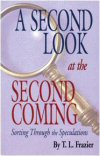
A Second Look at the Second Coming is a balanced, well-researched treatment of the end times, interpreted from the Christian East by faithful Orthodox saints, martyrs, and spirit-filled fathers of the faith. Historic Christian teaching on the rapture, the millennium, the state of Israel, and the role of the church in the last days is something quite different from what is commonly taught in today’s evangelicalism.
Terry Frazier has written numerous articles and books defending historic Christian beliefs. He has recently written Holy Relics and coauthored Understanding the Divine Liturgy with Father Michel Najim.
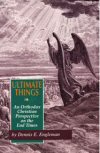
Every generation has had Christians who profess that the end is near. Some Christian groups believe Scripture indicates the end is near. In Ultimate Things, Dennis Engleman provides a thoroughly Orthodox Christian perspective on the end times. This text refuses to sensationalize these times or rewrite traditional Christian teachings to fit with the spirit of our age.
Dennis E. Engleman is an author, photographer, and engineer. He writes regularly on Orthodox subjects and has published numerous articles in various magazines. His other works include The Saint Nicholas Secret.
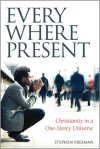
Have you ever referred to God as “the man upstairs?” Many Christians living in secular society have unwittingly relegated God and all things spiritual to the “second story” of the universe: a realm we cannot reach except through death. Popular blogger and podcaster Father Stephen Freeman argues that this effectively banishes God from our everyday lives.
In Everywhere Present, Freeman makes a compelling case for becoming aware of God’s living and active presence in every moment of our lives. Learning to practice your Christian faith in a one-story universe will change your life—and make possible the living, intimate relationship with God you’ve always dreamed of.
Stephen Freeman is an Orthodox priest who serves as the rector of St. Anne Orthodox Church in Tennessee. He has published a number of articles, gives a regular podcast on Ancient Faith Radio, and writes and maintains the blog, Glory2GodForAllThings.com.
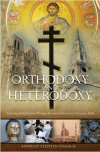
Are you an Orthodox Christian who wonders how to explain to your Baptist grandmother, your Buddhist neighbor, or the Jehovah’s Witness at your door how your faith differs from theirs? Or are you a member of another faith, curious what Orthodoxy is all about? In Orthodoxy and Heterodoxy, Fr. Andrew Stephen Damick covers the gamut of ancient heresies, modern Christian denominations, fringe groups, and major world religions, highlighting the main points of each faith. This book is an invaluable reference for anyone who wants to understand the faiths of those they come in contact with—as well as their own.
Reverend Father Andrew Stephen Damick is pastor of St. Paul Orthodox Church in Emmaus, Pennsylvania. He lectures widely on Orthodox evangelism, history, ecology, comparative theology, and localism. He is a founding member and associate director of the Society for Orthodox Christian History in the Americas. Father Andrew hosts the Orthodoxy and Heterodoxy and Roads from Emmaus podcasts, and writes the Roads from Emmaus blog.
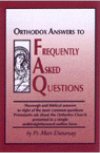
This convenient text provides thorough, biblical answers to eight of the most common questions that Protestants ask about the Orthodox Church, presented in simple, straightforward outlines. This text is no longer available in print, but can now become a valuable part of your Logos library.
Reverend Marc Dunaway is the dean of St. John Cathedral in Alaska and author of Orthodox Answers to Frequently Asked Questions.
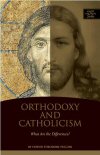
In this concise volume, a former Roman Catholic chronicles his own journey into Orthodoxy and examines the critical issues that influenced his decision—including papal authority, the filoque controversy, works salvation, and the “new” dogmas of the Roman Church
Father Theodore Pulcini studied at Holy Cross Greek Orthodox Seminary and has taught as visiting faculty at St. Valdimir’s Orthodox Theological Seminary. He is the priest at St. Mary Orthodox Church and teaches in the department of religion at Dickinson College in Carlisle, Pennsylvania.
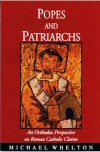
Popes and Patriarchs presents the Orthodox position on the role of the papacy in an intelligent, easy-to-understand style that will appeal to laypeople, priests, seminary students, and discussion groups. For any dialogue between the Orthodox and Roman Catholic churches to be fruitful, we must first understand our differences. Popes and Patriarchs covers some of the distinctions in theology and worldview that separate the churches of the East from those of the West, focusing primarily on the claims of papal supremacy.
Michael Whelton, a convert from Catholicism to Orthodoxy, discusses some of the theological and historical issues that led him to explore the teachings of the Orthodox Church, including the doctrine of original sin, the influence of medieval scholastic thought on the Western Church, and the modern trend toward evolutionary Christianity. He also examines in depth the true attitude of the early Eastern saints of the Church toward the papacy, an attitude radically different from that frequently attributed to them by Roman Catholic apologists. A final chapter is devoted to typical questions Roman Catholics raise about the Orthodox Church, including a comprehensive discussion of divorce and remarriage.
Michael Whelton is a British-born Orthodox writer who lives in southwest British Columbia. He is the author of Two Paths: Papal Monarchy-Collegial Tradition, The Pearl: A Handbook for Orthodox Converts, and False Gods: Counterfeit Spirituality in an Age of Anxiety.
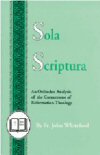
Sola Scriptura offers an Orthodox analysis of a pillar of Protestantism: private interpretation of Scripture. Father John Whiteford argues that this doctrine is based on fallacies and explains the Orthodox approach to Holy Scripture. This text is no longer available in print, but can now become a valuable part of your Logos library.
Father John Whiteford serves as parish rector of St. Jonah Orthodox Church in Texas.
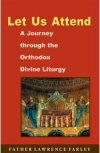
Let Us Attend is a guide to understanding the divine liturgy and a vibrant reminder of the centrality of the Eucharist in living the Christian life. Father Lawrence Farley leads everyday believers in a devotional and historical walk through the Orthodox liturgy. Examining the liturgy section by section, he provides historical explanations of how the liturgy evolved and devotional insights aimed at helping believers pray the liturgy in the way the fathers intended. In better understanding the depth of the liturgy’s meaning and purpose, people can pray it properly. If you would like a deeper understanding of Sunday morning experience so that you can draw closer to God, this book is for you.
Lawrence Farley currently pastors St. Herman of Alaska Orthodox Mission (OCA) in Langley, Canada. He received his BA from Trinity College, Toronto, and his MDiv from Wycliffe College, Toronto. A former Anglican priest, he converted to Orthodoxy in 1985 and studied for two years at St. Tikhon’s Orthodox Seminary in Pennsylvania. He has also published the Orthodox Bible Study Companion Series, A Daily Calendar of Saints and gives a regular podcast called Coffee Cup Commentaries.
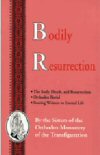
Bodily Resurrection explains the Orthodox understanding of the body, death, and resurrection, and presents a compelling apologetic for burial (as opposed to cremation) as an affirmation of our expectation of eternal life. This text is no longer available in print, but can now become a valuable part of your Logos library.
The Sisters of the Monastery of the Transfiguration reside at the Orthodox Monastery of the Transfiguration in Pennsylvania.
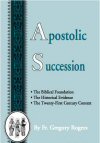
Apostolic Sucession examines the unbroken apostolic chain linking past to present in the historic Church. It was written by a former evangelical pastor whose study of the biblical and historical evidence led him to the 2,000 year old Orthodox Church.
Gregory Rogers grew up in a Protestant Evangelical church, and eventually became a youth pastor at another church in the denomination before converting to Orthodoxy. He now serves as pastor at Saint Barnabas Orthodox Church in South Carolina.
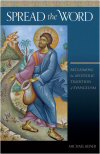
The Orthodox Church has an unbroken tradition of evangelism that goes back to the Apostles. But Orthodox evangelism looks different than the Protestant variety. With his characteristic straightforward and humorous style, Father Michael Keiser covers the history of Orthodox evangelism, the rationale, and the methods for continuing this tradition in a contemporary Western post-Christian society.
Michael Keiser is a convert to the Orthodox faith who was raised in the Western Christian tradition. He has studied in both the Western and Eastern traditions of Christianity, and has been actively involved in evangelism and outreach on behalf of the Orthodox Christian Church. An Orthodox priest for 30 years, he has served his entire ministry as part of the ancient, biblical Church of Antioch, both in the United States and Europe, and currently works as the head of the department of missions and evangelism of the Antiochian Archdiocese. During his career he has worked with 28 different congregations in the areas of renewal and growth, established new congregations, and guided many who have found a true home in Orthodox Christianity. Fr. Keiser has written five books dealing with worship, spirituality, and an Orthodox comprehension of suffering.
Reviews
2 ratings
A.J. Coukos
7/11/2017

Russel Taylor
10/28/2015